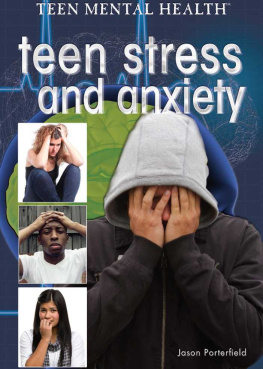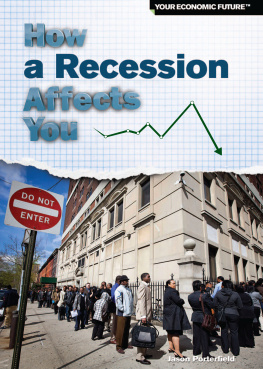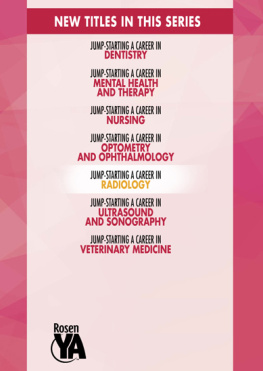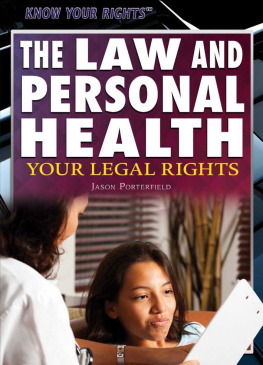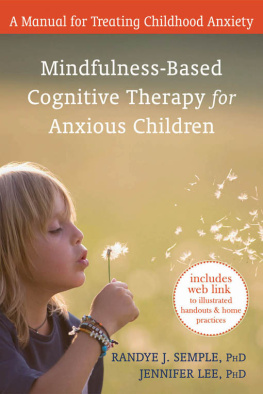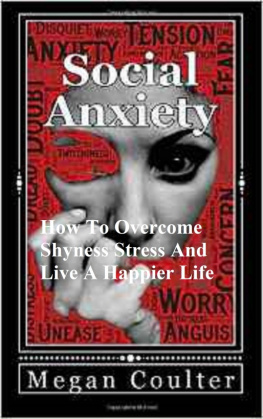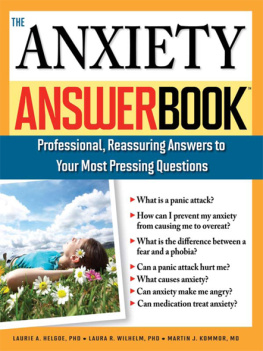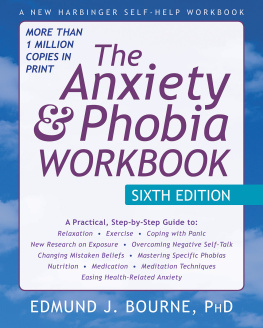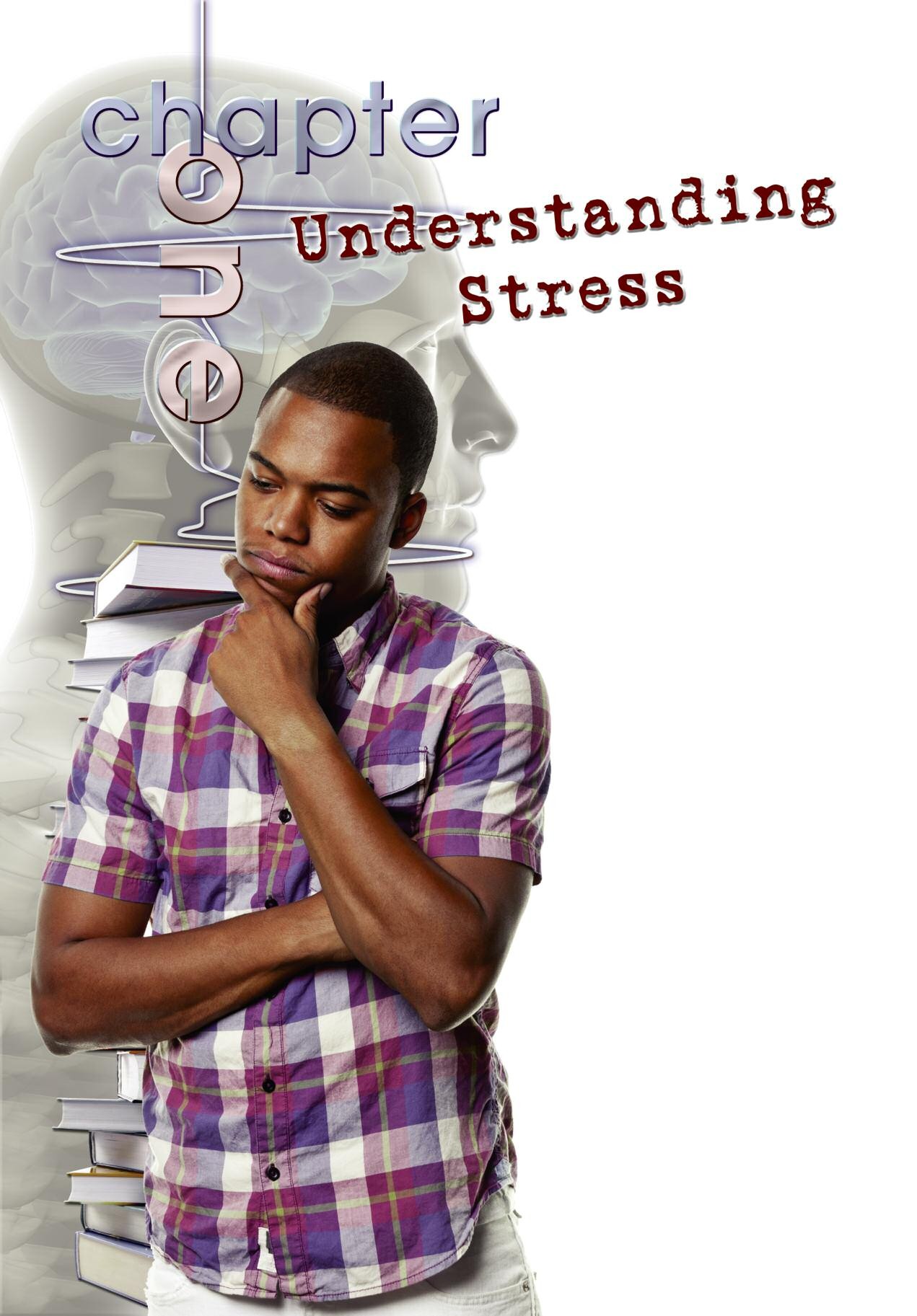Published in 2014 by The Rosen Publishing Group, Inc.
29 East 21st Street, New York, NY 10010
Copyright 2014 by The Rosen Publishing Group, Inc.
First Edition
All rights reserved. No part of this book may be reproduced in any form without permission in writing from the publisher, except by a reviewer.
Library of Congress Cataloging-in-Publication Data
Porterfield, Jason.
Teen stress and anxiety/Jason Porterfield.
pages cm.-(Teen mental health)
Includes bibliographical references and index.
ISBN 978-1-4777-1751-6 (library binding)
1. Stress in adolescence. 2. Anxiety in adolescence. I. Title.
BF724.3.S86P67 2014
155.5'1246-dc23
2013021778
Manufactured in the United States of America
CPSIA Compliance Information: Batch #W14YA: For further information, contact Rosen Publishing, New York, New York, at 1-800-237-9932.
M odern human beings live in stressful times Many people experience ongoing frustrations,pressures,and conflicts that cause constant feelings of tension and unease. Common sources of stress include concerns ( over money, work, school, health, relationships, and family. People feeling stressed often say they have more to do than they can handle.
The idea of stress is a recent concept, and scientific studies of the consequences of stress only began in the midtwentieth century. Researchers have since learned that stress can significantly impact physical and mental health. Small doses of stress can be beneficial, providing motivation to meet a challenge. Chronic stress, however, can cause health problems and contribute to psychological conditions such as anxiety or depression.
Each individual responds differently to stressful situations. A teenager may experience minimal stress over a big test but feel utterly stressed out before a first date. Some people can tolerate long-term stress better than others. Fortunately, there are ways to reduce the effects of stress. Each person will have to try various techniques to find what works best, but taking the time to relieve stress is worth the effort.
Stressed or Anxious?
Stress and anxiety are not the same feeling, though they are related. Stress is primarily a physical and mental response to threats, pressures, and demands. The heart rate increases and palms get sweaty. The mind has difficulty concentrating.
Anxiety includes emotional and cognitive symptoms in addition to physical and mental responses. People experiencing anxiety are worried and fearful. They tend to overthink and obsess on the source of the anxiety. Anxiety is often a result of stress, but additional factors can lead to anxiety. Some personality types are more prone to anxiety, and some people have a family history of anxiety. Health conditions and substance abuse can also cause anxiety. A straumatic event can produce anxiety.

Teens can experience stress triggered by many sources, from the everyday pressures of school, work, and family routines to traumatic life events.
Stress and anxiety are often associated with another condition: depression. People suffering from depression suffer persistent feelings of sadness, low selfesteem, and a loss of interest in favorite activities or hobbies. Stress contributes to both anxiety and depression by affecting how the brain processes critical situations. People who suffer from either anxiety or depression tend to overestimate the risks of stressful situations and underestimate their ability to cope. Depression and anxiety share some symptoms, such as irritability, trouble concentrating, and physical symptoms such as headaches.
Anxiety and depression are sometimes said to be flip sides of the same coin. For some, stress causes anxiety, which in turn leads to depression. According to Psychology Today, between 60 and 70 percent of people suffering from major depression also have an anxiety disorder. Half of those with anxiety also show symptoms of depression. People experiencing both depression and anxiety have more severe symptoms and more trouble responding to treatment.
Responding to Stress
Stress is the bodys reaction to a trigger-or stressor-such as a threat or high-pressure situation. The response to an immediate threat is called acute stress. The brain and body react automatically with a fight-or-flight response to the perceived danger.
To generate the stress response, the brain activates systems that send out neurotransmitters. As a result, hormones such as cortisol and adrenaline produce physical changes in the body. Heart rate and blood pressure increase. The circulatory system directs blood to major muscle groups, which is why your hands might feel cold when youre extremely nervous. The pupils of the eyes dilate to let in more light and improve vision. Muscles tense and levels of glucose in the blood increase to give the body more energy. The immune system diverts its defenses to areas of the body that could be affected in a physical confrontation, such as the skin and lymph nodes. The digestive system shuts down to allow increased activity in other systems of the body. The mind has difficulty focusing on details because a potential threat could come from any direction.
Once the threat has passed, the relaxation response kicks in. The bodys systems and hormonal balance return to normal.
The fight-or-flight response gave early humans an evolutionary advantage in an environment where people were surrounded by physical dangers. It quickly put the body in peak condition to react. In the modern world, however, the stress response is often less beneficial. Stressors are less likely to be an attacking predator and more likely to be homework, deadlines, and bills. Unlike physical threats, which abate quickly, these stressors can be ongoing.
When Stress Starts to Hurt
Acute stress is an isolated, short-term incident. Today, people can be bombarded by near-constant sources of stress. For some, this may result in episodic acute stress, in which one critical situation always seems followed by another.
An additional harmful type of stress occurs when an individual experiences ongoing pressure that keeps the fight-or-flight response in a constant state of activation. This condition is known as chronic stress. It disrupts some of the systems of the body, causing numerous health problems and exacerbating others. According to WebMD, between 75 and 90 percent of all physicians office visits are for stress-related problems.
Chronic stress weakens the immune system, which defends against disease. People who experience chronic stress are more vulnerable to infections. Chronic stress may also worsen allergies, asthma, and autoimmune diseases.
Acute stress affects the circulatory system, digestive system, and respiratory system. Chronic stress has been linked to illnesses related to these systems. Symptoms include shortness of breath, tight or aching muscles, problems sleeping, and heartburn. Chronic stress also contributes to skin ailments such as eczema, an itchy inflammation. Over the long term, stress may increase the risk of conditions such as high blood pressure, heart disease, and stroke. In addition, chronic stress worsens diseases such as diabetes and cancer. Because stress affects concentration, people who experience chronic stress may have memory problems.

